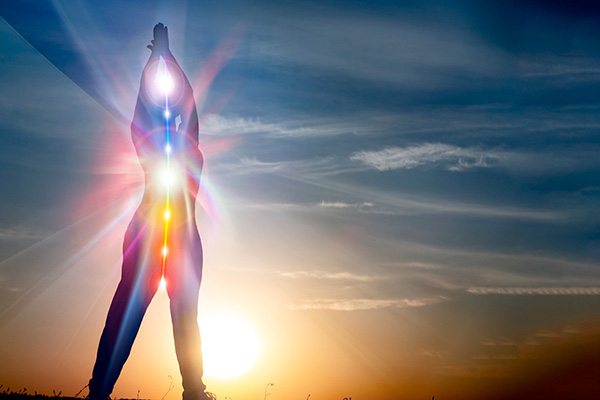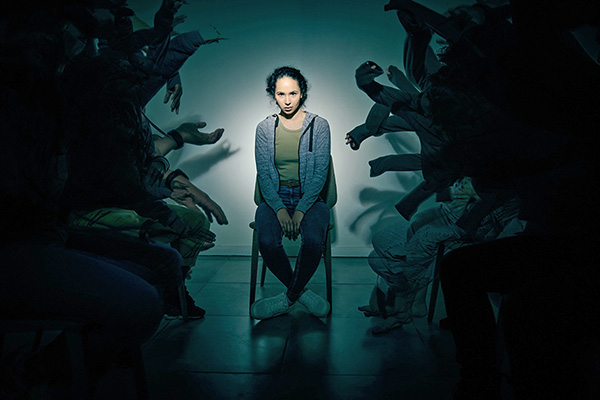social life
Setting Healthy Boundaries With Toxic People
 I have often wondered why so many of us tolerate unhealthy, unhappy, and sometimes very dysfunctional relationships with relatives and friends. Too many of us endure the toxic dynamics in our families and friendships, putting up with being the scapegoat, emotional punching bag, financial provider, free therapist, or nanny.
I have often wondered why so many of us tolerate unhealthy, unhappy, and sometimes very dysfunctional relationships with relatives and friends. Too many of us endure the toxic dynamics in our families and friendships, putting up with being the scapegoat, emotional punching bag, financial provider, free therapist, or nanny.
Why is it that many of us tend to keep giving the people in our lives second chances and multiple opportunities to learn and grow, hoping that they will somehow become more considerate, loving, and compassionate?
Meanwhile, we ignore their nasty words, spiteful behaviors, and toxic exchanges. We remain kind, tolerant, and patient. We try to help them lighten up, or connect on a deeper, more caring level. We hope that maybe someday everyone will be happier together and enjoy sharing more love and belonging, instead of dysfunction and drama.
But as the years go by, they continue to disappoint, abuse, and betray us. The loving kindness and mutual support never comes. Try as we might in these toxic situations, the people we love and care about will continue to talk down to us or try to make us feel that we are not good enough. These complicated family and friendship situations can eventually cost us our physical and mental health, our financial security, and our personal accomplishments.
I find this to often be the case with my clients who are gifted, empathic, highly sensitive, and spiritually aware. Some even consider it their purpose or calling in this lifetime. However, while being a wounded healer or earth angel is certainly a noble calling, being a scapegoat or doormat is definitely not! God, Source, Spirit, the Divine wants us to be happy, healthy and safe, and to live our best life.
The Ghosts Of Regret
 As part of my training as a spiritual life coach, our class was asked to do a profound exercise. Our task was to imagine ourselves on our deathbed someday, being visited by a gathering of ghosts. We had to imagine these ‘ghosts’ from our past as being very bitter and angry, because they represented all the things we never achieved or succeeded in, coming back to haunt us. They were the ghosts of our unfulfilled goals and dreams returning to die along with us.
As part of my training as a spiritual life coach, our class was asked to do a profound exercise. Our task was to imagine ourselves on our deathbed someday, being visited by a gathering of ghosts. We had to imagine these ‘ghosts’ from our past as being very bitter and angry, because they represented all the things we never achieved or succeeded in, coming back to haunt us. They were the ghosts of our unfulfilled goals and dreams returning to die along with us.
We were asked to then review our life and imagine what we would say to ourselves and our ‘ghosts,’ now that our life is over. What would we advise ourselves to do if we could go back in time, get a second chance, and somehow live our life anew?
For me, this was a very thought-provoking process. The first thought for me was my personal ‘bucket list’ of things I still want to experience in this lifetime. For example, I still want to travel on the Orient Express train with my family; see the view from The Shard (a 72-storey skyscraper in London); fly down The Grand Canyon; and witness the splendor of Niagara Falls.
There are many things I still hope to also do. But why have I not done at least some of it yet? Too busy earning a living? Yes, we all get busy, and most of us need to work. However, does this mean we cannot also lead a fuller life?
The next thought the deathbed exercise brought up for me was a sad memory from a few years ago, when my late brother was receiving rehabilitation treatment at a local hospital. We were very close as siblings. He confided in me one day, while we sat looking out the hospital window and saw a young family walking by, that he often feels intense regret and sadness when he sees people with their kids and grandkids, while he had no offspring of his own.
Protect Yourself From Negative Energy Attachments
 A neighbor once asked me to smudge her home and bless it, because she felt there was a lot of negative energy there. She could just ‘feel it.’ People lived below her that she could hear arguing until late hours in the night, using foul language. They would chain smoke too, to the extent that it would rise up through the floorboards. It made her feel sick and caused her to have migraine headaches. Apart from that there were also some old ‘cobwebs’ of trapped negative energy that she wanted me to some and clean out.
A neighbor once asked me to smudge her home and bless it, because she felt there was a lot of negative energy there. She could just ‘feel it.’ People lived below her that she could hear arguing until late hours in the night, using foul language. They would chain smoke too, to the extent that it would rise up through the floorboards. It made her feel sick and caused her to have migraine headaches. Apart from that there were also some old ‘cobwebs’ of trapped negative energy that she wanted me to some and clean out.
She had been dealing with the ups and downs of depression for as long I’ve known her. She is one of the sweetest people you could ever hope to meet, let alone have as a neighbor. She is very kind and always there if you need her. She would be very social at times, inviting friends from church over and entertaining friends regularly, for several weeks, and then she would suddenly feel overwhelmed by the chaos and drama of the people around her, feel drained and depressed, and withdraw from everyone. Then you would not see her for weeks, sometimes months.
I told her I felt that she needed to protect herself energetically and shared with her ways that she can do this. I explained to her that sometimes, when we engage with people, we can pick up some of their negative energies. Even if they are seemingly good people, who go to church and so on, it doesn’t necessarily mean that these people are free from negative energies, or worse, unwanted spirit attachments.
Gratitude Is The Essential Spiritual Practice
 In a fast-paced world with many distractions and challenges, it is easy to overlook gratitude’s transformative power. Cultivating a mindset of appreciation by acknowledging all the good in our life greatly enhances our well-being and quality of life.
In a fast-paced world with many distractions and challenges, it is easy to overlook gratitude’s transformative power. Cultivating a mindset of appreciation by acknowledging all the good in our life greatly enhances our well-being and quality of life.
Gratitude is advocated in many cultures, religious teachings, and spiritual traditions. It is generally considered the mother of all virtues and the essential spiritual practice. In Judaism, for example, gratitude is considered an essential part of worship. Islam encourages believers to be grateful and express thanks to Allah in all circumstances. Christians are encouraged to praise and give gratitude to God not just in thought and feeling, but also in deeds and action.
Gratitude is also a virtue that Hindus believe should be cultivated in order to live a fulfilling life of inner peace and contentment. Many Buddhist monks begin each day with a chant of gratitude for the blessings in their life. In fact, in Shin Buddhism, gratitude is seen as a primary practice that has priority over meditation and study.
In modern times, scientific research has shed further light on the profound benefits of having an ‘attitude of gratitude.’
While traditionally confined to the realm of philosophy, gratitude has garnered much attention in the field of positive psychology in recent years. Neuroscientists have also begun exploring gratitude from a scientific perspective, seeking to unravel the intricate workings of the brain when we practice and experience gratitude.
Increase Your Power And Influence With Charisma
 Charisma is a skill that can have a profound impact on our personal and professional lives. It is often wrongly assumed that charisma is a personality trait or talent that some people are born with. The truth is charisma is a learned behavior and skill that can be developed by anyone.
Charisma is a skill that can have a profound impact on our personal and professional lives. It is often wrongly assumed that charisma is a personality trait or talent that some people are born with. The truth is charisma is a learned behavior and skill that can be developed by anyone.
Charisma is the magnetic ability to attract, charm, and persuade others with our words and actions. The term originates from the Greek khárisma, which means ‘favor freely given,’ or ‘gift of grace,’ because the ancients believed that possessing this quality was a divine gift bestowed only upon those who were favored by the gods.
It is generally associated with people who are confident, engaging, and influential. By cultivating charisma, we become more effective at reaching and connecting with others, which can be invaluable in life.
Whether we are seeking to build stronger, healthier personal relationships, foster better professional connections, or make more friends, having a strong presence and the ability to engage with others is a key factor for success. Charisma is not about being arrogant, manipulative, or insincere. Rather it is about being authentic and genuine, while also being able to express ourselves in a way that resonates with others.
Charismatic people are skilled communicators who are able to listen actively, empathize with others, and express themselves clearly and persuasively. They are also able to project confidence, enthusiasm, and positivity, which can be infectious and uplifting to those around them.
Facing Our Inner Demons
 I am in the process of relocating, again. Yes, I have done this many times before. I have repeatedly packed up my most treasured belongings to completely reboot my life in a different town, city, or state.
I am in the process of relocating, again. Yes, I have done this many times before. I have repeatedly packed up my most treasured belongings to completely reboot my life in a different town, city, or state.
Some people find moving to be a logistical hassle and inconvenience, while others find it very challenging to say goodbye to friendly faces and familiar places. They therefore avoid it whenever possible. But for me relocating to a new place is an inspiring opportunity and invigorating adventure! Settling in a new place, to explore and discover, have novel experiences, and create new memories, is so very exciting. It keeps me young and motivated!
It is however important to note that I do not choose to relocate because I am running away from myself, my problems, or life’s challenges. It is true that some people relocate frequently because they hope it may solve their problems or help them to somehow feel happier. This is never a good idea.
The problem with moving for the wrong reasons is that you pack up and take all your troubles with you. At first, things are interesting and fun in the new location, but within a few months the ‘runners’ find themselves exactly where they were before. The problems they faced before, tend to be the same problems they now have in the new place. Right back to square one.
This kind of repeating pattern is something I often find with clients I do readings for. Someone I supported during a relationship break-up might call me one day, excited to tell me about their ‘perfect’ new love interest. Things are very exciting for a while for the new couple, until the same old patterns of dysfunctional behavior, conflict or drama begin to surface.
How To Deal With Toxic People
 Toxic people can be incredibly difficult to deal with in both personal and professional relationships and can be detrimental to your personal happiness and well-being.
Toxic people can be incredibly difficult to deal with in both personal and professional relationships and can be detrimental to your personal happiness and well-being.
A toxic person is someone whose constant negativity and dysfunctional behavior causes drama in your life and drains you energy whenever they are around. Typical toxic traits include negativity, cynicism, apathy, lack of self-awareness, arrogance, entitlement, self-centeredness, domineering behavior, lack of empathy, being judgmental, dishonesty, anger outbursts, to name only a few.
The most extreme forms of toxicity includes personality disorders like antisocial, borderline, histrionic, and narcissistic personality disorder. A personality disorder is a rigid, deeply characteristic way of thinking, feeling and acting that severely affects the person’s mental well-being, personal relationships and social life.
Toxic people can however be tricky to identify at first, as their dysfunctional traits and behaviors can be very subtle. Some of them are also very good at ‘gaslighting,’ which makes interacting with them even more treacherous.
Gaslighting is a very toxic form of manipulation, game playing, or crazymaking in which you are constantly being misled, confused, lied to, and made to question your own truth and reality. You increasingly feel unsure about the accuracy of your own memories regarding certain events and your personal opinions and perceptions of the world. You may even begin to think that you are to blame for the toxic person’s actions, or that maybe something is very wrong with you, or worse, that you are losing your mind.